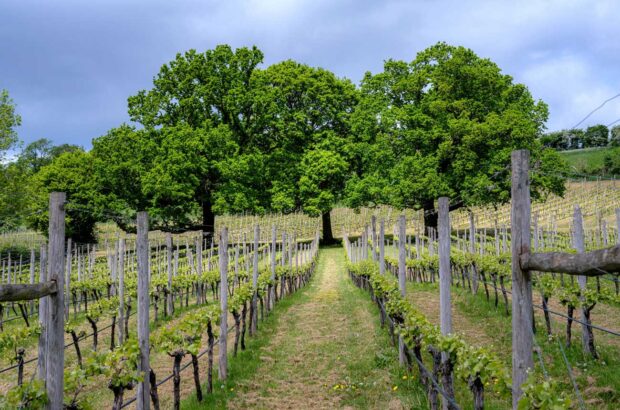Summer droughts in Europe since 2015 been more severe than at any period in the past 2,110 years, according to new research led by the University of Cambridge.
‘Human-caused climate change’ was likely the cause, said the study published in Nature Geoscience.
It reconstructed summer weather over two millennia by analysing the rings of living and dead oak trees in modern-day Czech Republic and southern Germany.
Although the data focused only on central Europe, the study’s findings add to a growing body of evidence surrounding the impact of climate change on communities across the continent.
In vineyards, a degree of water ‘stress’ during the growing season is seen as beneficial to varying degrees, but severe drought conditions can also impact harvest yields and influence how grapes ripen.
Some grape varieties grown in drier, warmer conditions are naturally better at conserving water, found a recent study led by the University of California Davis, published in the Journal of Experimental Botany.
Some experts warn the wider climate challenge is coping with extremes.
‘Climate change does not mean that it will get drier everywhere,’ said the Cambridge drought study’s lead author, professor Ulf Büntgen.
‘Some places may get wetter or colder, but extreme conditions will become more frequent, which could be devastating for agriculture, ecosystems and societies as a whole,’ said Büntgen, of the University of Cambridge’s department of geography and who is also affiliated to CzechGlobe research centre.
Professor Greg Jones, a climatologist who is also chair of the Evenstad Centre for Wine Education at Linfield University in Oregon, US, said he was not surprised by the Cambridge-led study’s results.
‘A major global update based on data from more than 36,000 weather stations around the world confirms that, as the planet continues to warm, extreme weather events such as heatwaves, drought, and heavy rainfall are now more frequent, more intense, and longer,’ he told Decanter via email.







